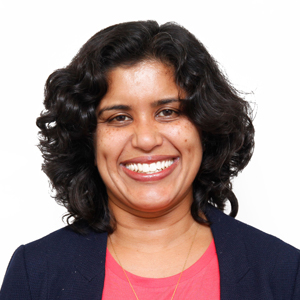Meet Raymond Cypess
As a teenager, Raymond Cypess cut his teeth in business at his father’s bakery. These days, Cypess applies that business education as the current chair and chief executive officer of American Type Culture Collection, better known as ATCC.
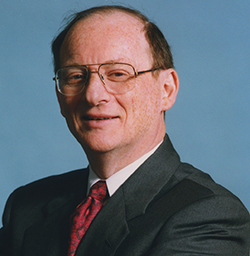 Raymond Cypess American Type Culture Collection
Raymond Cypess American Type Culture Collection
Cypess joined ATCC in 1993 as the president of the organization and became its chair and CEO in 2006. Before leading the ATCC, Cypess was a dean, a professor of microbiology and immunology, and the vice provost for research and research training at the University of Tennessee, Memphis. He also held appointments at the University of Pittsburgh and Cornell University. Cypess has a doctorate in veterinary medicine from the University of Illinois and a Ph.D. in parasitology from the University of North Carolina.
In an extensive interview with the American Society for Biochemistry and Molecular Biology’s chief science correspondent, Rajendrani Mukhopadhyay, Cypess described his vision for ATCC, passion for science and unusual career path. The interview has been edited for clarity and length.
About the ATCC
ATCC was established in 1925 by several scientific societies as a centralized collection of microorganisms. But starting in the 1990s, ATCC expanded its role and services. Headquartered in Manassas, VA, the nonprofit organization now is the leading collector, preserver and supplier of reference standard microorganisms, cell lines and other biomedical research materials. The organization, known as a “biological resource center,” also offers technical services and educational programs.
What was your vision for ATCC when you were hired, and how has it changed?
When I was interviewed, the (ATCC) board asked, “What’s your vision?” I said, “Basically, my vision is that the ATCC is a standards organization.”
I said, “You’re a knowledge company, because the microbes that you have stored away are full of information, the keys of which we haven’t yet been able to identify. But when we get the right keys and unlock the doors, we’re going to find information.” This was before the genomic revolution.
Well, recently (the board) asked me again what my vision is. I said, “A standards and knowledge company.” That hasn’t changed, except now it’s been realized. We are the standards company. I’m fascinated by the importance of standards and their role in science and society.
In 1993, ATCC had a huge capital deficit, and we were in a death spiral. I said to the employees, “You don’t know how good ATCC could be. A little creative imagination, a little leadership could probably realize that potential.”
I also said to them, “Nobody can help you but you. Stop looking for divine intervention or saviors from industry, agencies or (scientific) societies. You’ve got to help yourself, so let’s roll up our sleeves and get it done. ” That’s how it all started.
Why are you fascinated by standards?
The methodology of science is built around replication. Replication requires minimizing variation. Science is the study of constants and wrestling with the variations.
I have a way of looking at things that’s very eclectic. I like to take ideas from other fields and apply them to what I’m thinking about. I always was creative. I may not always spell correctly or write grammatically, but I have “the vision thing” and can create new structures and programs. I have the ability to look at problems, processes and structures with a very open mind without placing limits. When I looked at ATCC, I realized that while we had some of the finest biological materials, we had to find a way for ATCC to reinvent itself without throwing out its mission. One way we reinvented ourselves was focusing on standards.
Some people on the board felt that ATCC could be a beacon for the scientific community. I said, “I agree with you. But we have to fix up this place.”
What were those fixes?
There are some key components to business success. I call them the three R’s. The first R is recruitment. The second is retention, and the third is resource development. We had to get better people. We had to get the right people. We had to decide who to keep and not to keep and what to keep in the business and what not to keep in the business. I had to focus on resource development, because we had to get financially sound. We didn’t even have a good place to work. (Author’s note: Before Cypess took over, ATCC was based in Rockville, Md.) The utilities couldn’t support the place. You couldn’t plug in instrumentation. We were bursting out of the seams. We were in really antiquated facilities.
Another change was that I, with Judy Vaitukaitis (former head of the National Center for Research Resources at the National Institutes of Health), created the concept of a “biological resource center” that emphasized the sourcing, authentication, preservation, manufacture and distribution of standards. ATCC was originally put together by scientific societies for the purpose of storing the genetic diversity of the microbial world. There’s some element of that still, but it’s much more about providing the standards to do research.
We’re also a public collection. It’s very important not only that scientists replicate what they do but also that they share what they do. Nobody has deposited anything significant at ATCC since 1985 with the change in biotechnology patenting laws. With the Bayh-Dole Act and the fact that you can patent biologic material, everything changed. Nothing significant was being deposited anymore. I coined the term “scientific philanthropy” to describe the depositing of materials and sharing. If people don’t share, you cut off quality control. The whole issue of sharing of materials is a big problem, and I think a biologic resource center is one of the ways of dealing with that.
What happened in your childhood to spark your interest in science?
I grew up in an immigrant community. Working-class Brooklyn. You wouldn’t go near the place. I was a skinny, freckle-faced redhead with big glasses. I was recognized as being very smart in school. Well, that was tough, except I was a good athlete. I ran and I could play baseball really well. That kept me alive.
But my other outlet was reading. I read everything I could get my hands on. Sick in bed, Mom taking care of me, sometimes I think I got sick because I wanted to read. I started reading books about science. “Microbe Hunters” was one of my favorites. I became fascinated with science. With the imagination that I have, I could live vicariously by reading books.
The other influence on me was music on the radio. In the 1940s and 1950s, radio was the hot medium. I played woodwinds – the bass clarinet and saxophone. I listened to music on the radio, like to Benny Goodman and Woody Herman. They were great clarinetists. That’s probably why I played the clarinet. I love music. Music permeates everything I do.
In the summers, my parents would take me to the (Catskills) mountains, and I loved the farm there. I got involved with chickens, cows, horses and tractors. In many ways, it was an escape from the city.
What did your parents do?
My parents were immigrants. My mother wanted to be a journalist, but she became a frustrated seamstress. My father’s whole family was farriers and farmers. In the U.S., my father became a professional baker. He loved it. It was creative, because he was a cake baker. He was a very interesting man. In 1923, he said that the family had to leave Europe. The family was in Lithuania and Poland. One reason, he said, was that there was no opportunity for education for the working class, and education is the key to everything. The family had to go to a place where there would be educational opportunities. He was right. In many ways, he saved the family.He was full of energy. He loved working, and he loved his family. That influenced me quite a bit.
How did you become a scientist?
When you were from the immigrant class (in the 1950s), there were only certain professions open to you. One of them was teaching. In the New York City school system, the pay and benefits were very good. So it was natural for me to be thinking about teaching. When I was pursuing a bachelor’s degree in biology, I got a minor in education. I was a certified New York State teacher and substitute-taught.
In order to advance in my teaching career, I had to get a master’s degree. I always was interested in entomology. University of Illinois had one of the great programs. I went to Illinois as a graduate student.
When I was in my first year as an entomology student, my advisers said, “If you want to advance in the field, you better get a health-related degree.” I said, “I always wanted to be a veterinarian.” They said, “Apply to vet school.” I did and Illinois let me in.
I never finished my entomology master’s degree. It was a 6-year program (at vet school). The dean of the vet school at Illinois said, “I’m accepting you into vet school, Raymond, because this field is going to need academics. You’re going to be an academic.” I said, “You’re probably right.” But I did practice veterinary medicine for a short time.
Why and where did you do your Ph.D.?
My veterinary degree was a stop on my way to getting a Ph.D. I did my Ph.D. in parasitology at a combined University of North Carolina-Duke University program. My wife became an assistant professor of Latin American literature at Duke. She did her Ph.D. in Illinois when I was at vet school. North Carolina was the only place we could get two jobs together, a problem that plagued us throughout our two careers.
When I graduated, University of Pittsburgh offered me a tenure-track position in the school of public health. At Pittsburgh, I really grew into being a scientist and a teacher. What am I proud of? I’ve won every teaching award in every institution where I’ve taught. I’m very proud of that.I was a competitive, tenured scientist at one time. I worked on the genetics of susceptibility and resistance to parasites. I used Nematospiroides dubius as a model, which is a natural helminth of the mouse. I also came up with a diagnostic test for Visceral larva migrans, which is the dog roundworm that gets into children’s eyes. Before my work, eyes sometimes got taken out, because the infection bears a similarity to retinoblastoma. (Author’s note: Retinoblastoma is a cancer that forms in retinal cells.) I came up with the ELISA test for the roundworm.
I left Pittsburgh to become the director of the veterinary school’s diagnostic laboratory at Cornell in 1977. I also planned and obtained funding for the department of preventive medicine and became its first chair. With these substantial administrative posts, my career in experimental science came to a crashing close. With my successes in academic management, I was recruited to be vice provost and dean of the graduate school at the University of Tennessee, Memphis. But when there was the possibility of becoming the provost at another university, I said, “No, this isn’t what I want to do anymore.”
Where did you get your taste for business?
People always do ask me, “Where did you learn to be a businessperson?” The answer is in my father’s bakery. From the age of 14 to about 20, I was running the business part of my father’s bakery. That’s how I learned the retail world. That’s how I learned how to deal with the customer. I learned how to do a budget, read a financial sheet and manage risk. Then I just kept learning and reading. You watch good people and listen.
When I got to ATCC, the business part of me came out fully. I am very comfortable in the business world, because I can talk the talk and understand the talk. I understand investments, strategic planning, finance, performance evaluations and recruitment. I understand all the things that a businessman has to understand but without an MBA.
But I still have an academic appointment at Pittsburgh as an adjunct in epidemiology. (Author’s note: Cypess’ appointment allows him to stay abreast of the field and maintain contacts in public health.)
How do you find synergy between science and business?
I love problem solving and teaching how to solve problems. My friends in the academic world are aghast when I say this, but management is an experimental science. It’s different from chemistry and biology, but it is a science. A science background can be productive in the business world. The ability to teach also is valuable, because teaching is communication. The three most important things in business are communication, communication, communication. We need more people who understand management both in science and in business. You can find scientists who can dabble in business, and once in a while, you find someone who’s really good at it. Then you find some businesspeople who have an understanding of science. But it’s rare when you can find someone who does both really well.
What’s your advice to young scientists?
Don’t specialize too fast. Get a well-rounded education. (One of) my sons is an MD/Ph.D. He says the two most important classes he took were Spanish and typing. There were times when he was a medical student on the hospital floor and the only one who could speak Spanish to certain patients and their families.
Make sure you learn how to write. Make sure you learn the fundamental courses that contribute to science: Know your statistics, basic math, physics and chemistry. These skills will give you more flexibility and options along your career path. Don’t become a reductionist too quickly. When I look at a frog, I can see a frog. I don’t see a bunch of molecules. But I can get down and look at molecules if you want me to. After you specialize, appreciate the bigger picture, because it helps to find perspective and identify the next questions. Always think about how it all works together.
Enjoy reading ASBMB Today?
Become a member to receive the print edition monthly and the digital edition weekly.
Learn moreGet the latest from ASBMB Today
Enter your email address, and we’ll send you a weekly email with recent articles, interviews and more.
Latest in People
People highlights or most popular articles
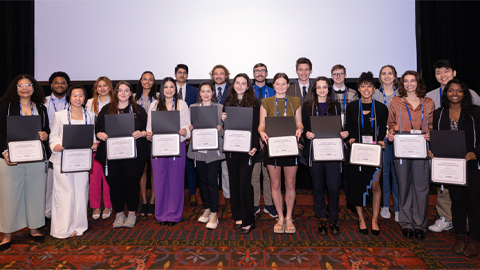
ASBMB inducts new honor society members
Chi Omega Lambda, which recognizes exceptional juniors and seniors pursuing degrees in the molecular life sciences, has 31 inductees in 2024.
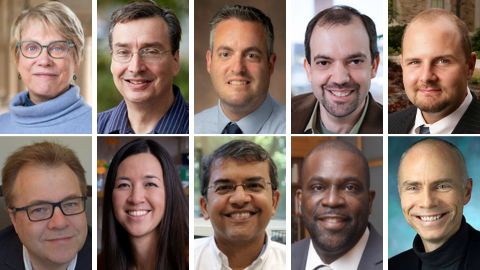
2024 voter guide
Learn about the candidates running for ASBMB Council, Nominating Committee, Publications Committee and treasurer.
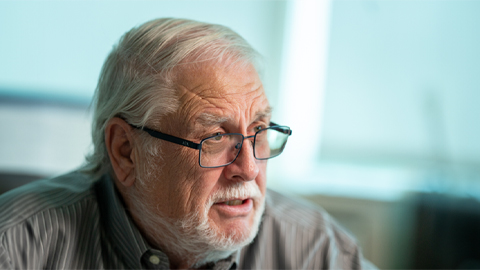
Charles O. Rock (1949 – 2023)
Colleagues and trainees remember a world expert in membrane lipid homeostasis.
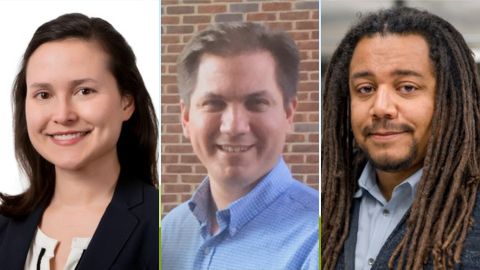
Honors for Clemons, Hatzios and Wiemer
Awards, honors, milestones and more. Find out what's happening in the lives of ASBMB members.
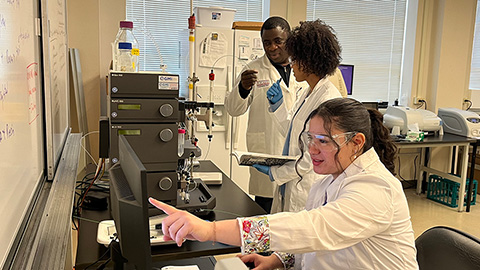
Touching the future from the bench
Scholar, scientist, teacher and mentor Odutayo Odunuga discusses the important roles of the institutional PI, his journey and his research.
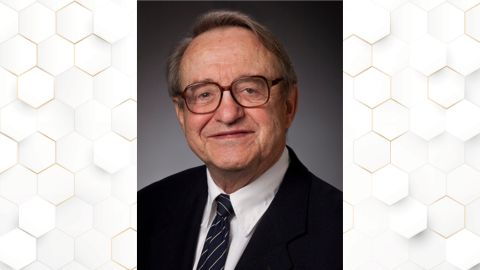
In memoriam: Darwin Prockop
He held leadership positions at multiple institutions and was known for his contributions to adult stem cell biology and cellular biology.

